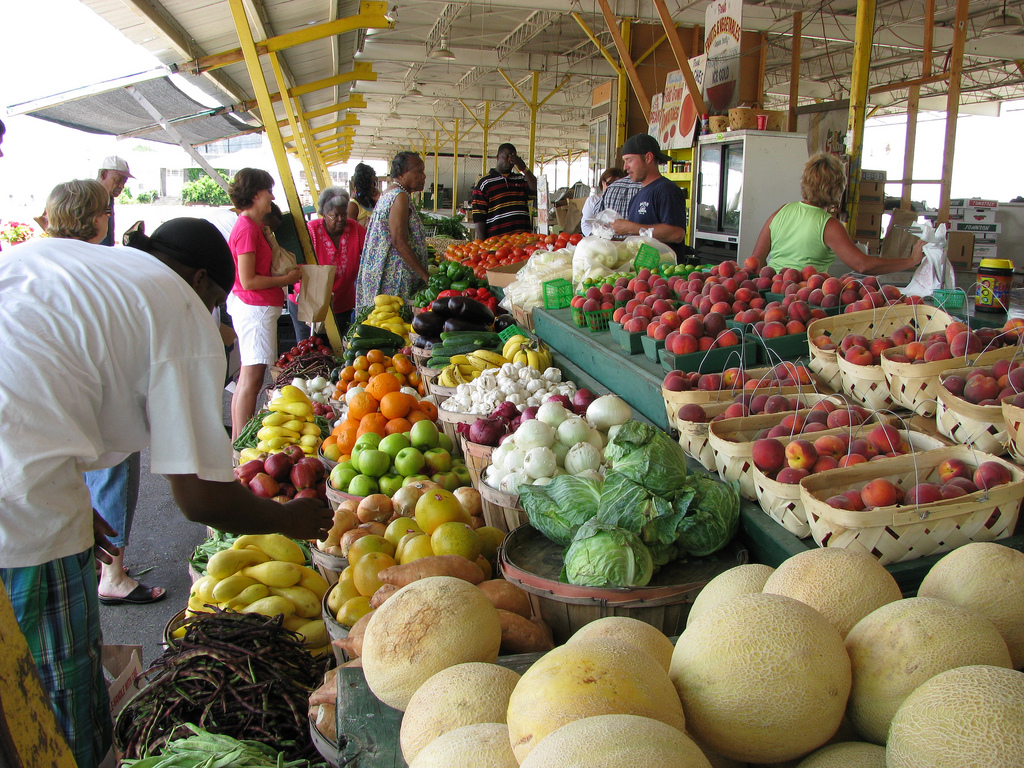A while ago I came across a whitepaper that decimated a notion I’d harbored for a long time: that farm subsidies were a key enabler behind our national problem with obesity, and, therefore, many chronic, preventable health conditions. It seemed to be a logical (if factually flawed and highly simplified) flow: subsidies encourage overproduction of certain commodities, especially corn and soy, which, because they’re so abundantly over-produced, end up as meaningless livestock feed and unhealthy fillers in processed foods; processed foods, made mostly from these unhealthy ingredients, end up being significantly cheaper than healthier whole foods, encouraging over-consumption.
It turns out that the very first part of that flow – the part where subsidies encourage overproduction –presented the surprising (to me anyway) flaw in my logic. This whitepaper isn’t new – it came out in 2011. I’m sure it was widely discussed in food policy advocacy circles at the time. Sadly, from what I have seen, the policy changes advocated in the paper (which appear to be based in quite a deep and sound body of evidence) have yet to take root.
I haven’t been able to do further research (yet) into why it is that we haven’t made any significant strides on the food policy front, but I have a few hypotheses: 1) Disengagement. As I’ve surmised in prior posts, the long-term negative health impacts of poor eating habits simply aren’t particularly evident, usually until it’s too late, so most people just aren’t paying attention – they have bigger fish to fry (so to speak!) in their lives, or so they think. It’s a little like engaging with our democracy – we take it for granted until things get too painful for us, then we start writing our Congressmen. Maybe. 2) Food policy is a double-whammy. Not only is its importance not evident enough to enough people, it also does get into politics. Changing policy requires changing minds at the legislative level, a challenge for even the most fired-up consumers, especially in light of the lobbying power of 3) “Big Food.” The whitepaper makes a clear point in its third finding: “The food industry has been the main driver of commodity policy, not farmers.” The evidence shows that “the deregulation of commodity markets – not subsidies – has had a significant impact on the price of commodities. Deregulation also has provided benefits and incentives to the food industry, including processors, marketers and retailers, and is one of a number of contributing factors impacting the availability of high-calorie processed foods in the marketplace.”
The paper is very much worth the read if you’re even remotely interested in addressing public health issues and the cost of healthcare. If you don’t have the time for the full 13 pages of content, there’s also this issue brief that distills it all down to 3 pages.
The impact of blaming subsidies also tends to demonize farmers, which I suspect most of us don’t want to do. There’s been a definite resurgence of small, local farms in various places around the country in the past decade, but it’s incredibly difficult for them to make a consistent living from growing things we can actually eat (as opposed to mass production of the commodity crops noted above), and it’s especially difficult for them to price their products at levels that lower-income households (who are disproportionately impacted by those pesky preventable chronic diseases) can justify spending. What if there were a way we could incentivize farmers to go back to growing actual food, in places that are relatively local to most of us, and make real, fresh, healthy food accessible and affordable to everyone?? The paper concludes with a short list of recommendations for policy solutions:
- Engaging in the long-term campaign to reform commodity policies;
- Increasing consumption of fruits and vegetables, whole grains and other healthy foods;
- Expanding the supply of healthy foods by helping farmers diversify their production and supply local and regional markets with healthy food;
- Building the infrastructure needed to better link farmers and consumers and aid in the delivery of healthy foods.
We can keep burying our heads in the sand and ignoring this problem, arguing over “healthcare reform” that’s focused only on treating symptoms, or we can focus on things that will make us, our children, and our grandchildren truly healthier.
There are many organizations out there who are doing this work at national, state, and local levels, and they are always delighted to have extra voices and resources to help. The two who collaborated on the whitepaper, Food and Water Watch (www.foodandwaterwatch.org) and The Public Health Institute (www.phi.org) are great places to start, but nearly every state and major city also have food policy organizations addressing things at more local levels if you’re so inclined. (There’s a wonderful one in the Hartford, CT area for which I served as a board member for 6 years, Hartford Food System (www.hartfordfood.org)). Their work and the work of their counterparts around the country will make you smile. Check them out.
Happy Food Friday!




No comment yet, add your voice below!